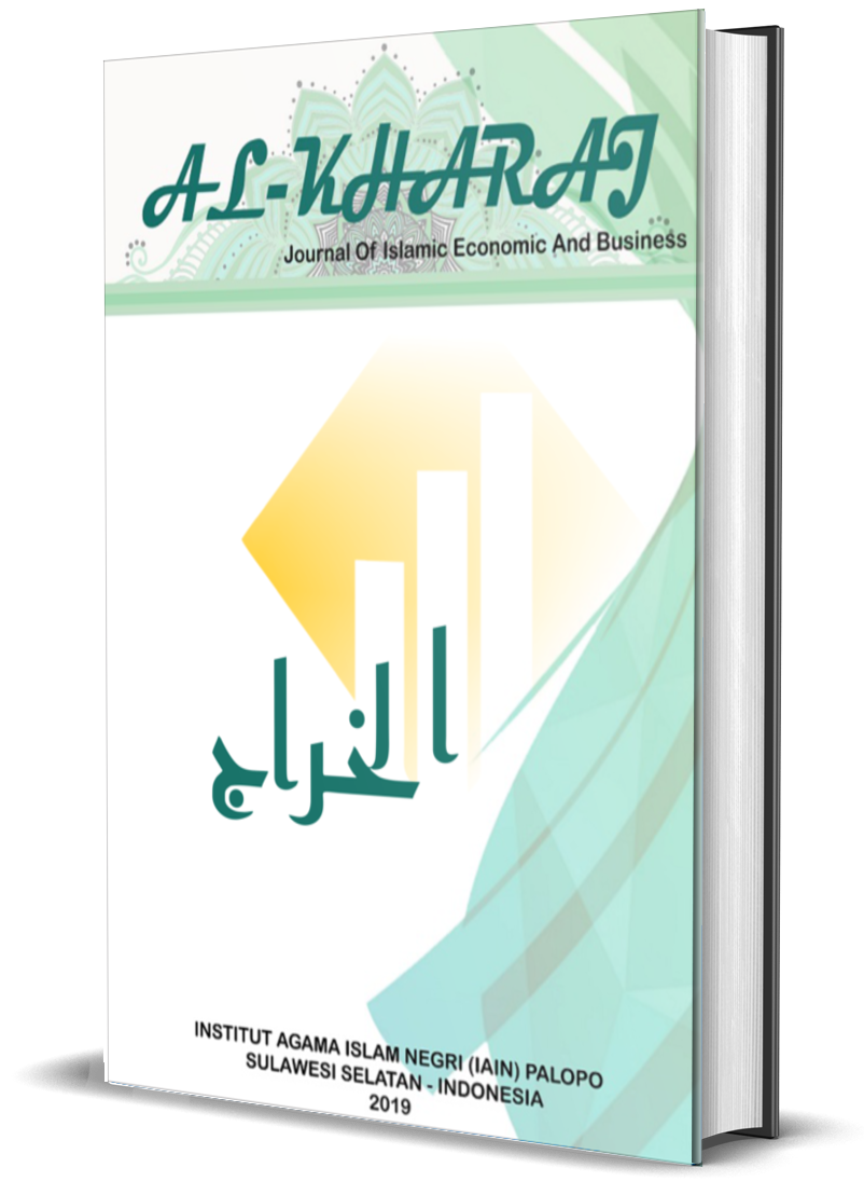The Role and Authority of Class I Auctioneers in Indonesia within the Framework of State Administrative Law
DOI:
https://doi.org/10.24256/kharaj.v7i3.7795Keywords:
Class I Auction Official, State Administrative Law, Legal CertaintyAbstract
This study analyzes the position and authority of Class I Auction Officials in Indonesia from the perspective of state administrative law. The research finds that the legal basis for the position and authority of Class I Auction Officials is a ministerial regulation, not a law, which contradicts the legal requirements for authentic deeds as stipulated in Article 1868 of the Civil Code. The current system grants the Ministry of Finance the dual role of regulator and executor of auctions, which raises concerns about independence and neutrality. This dual role can lead to legal uncertainty because the official's authority is based on ministerial delegation rather than attribution from a higher law. The ideal arrangement, from a state administrative law perspective, would be to establish a clear legal framework at the level of a law (undang-undang) to regulate the position, authority, and recruitment of Class I Auction Officials. This would ensure their independence and neutrality. It is suggested that the role of auction officials be given to professionals outside the civil service, while the Ministry of Finance should act as a supervisor to prevent conflicts of interest and ensure a fair and just auction process. This would align the Indonesian auction system with the principles of good governance and legal certainty.
References
Agustino, L. (2006). Dasar-Dasar Kebijakan Publik. CV. Alfabeta.
Arsil, F. (2017). Teori Sistem Pemerintahan Pergeseran Konsep dan Saling Kontribusi Antar Sistem Pemerintahan di Berbagai Negara. PT. RajaGrafindo Persada.
Borman, M. S. (2019). Kedudukan Notaris Sebagai Pejabat Umum dalam Perspektif Undang-Undang Jabatan Notaris. Jurnal Hukum dan Kenoktariatan, 3(1), 76-85.
Dewi, N. M. A. S., & Resen, M. G. S. K. (2021). Harmonisasi Kewenangan Pembuatan Risalah Lelang Antara Notaris dengan Pejabat Lelang. Jurnal Hukum Kenoktariatan, 6(1), 40-52.
Dunn, W. N. (2003). Analisis Kebijakan Publik. Gadjah Mada University Press.
Hadjon, P. M. (2005). Pengantar Hukum Administrasi Indonesia. Gadjah Mada University Press.
Hermanto, A. B. (2021). Mengenal Hukum Administrasi Negara. FH Universitas Pancasila.
Hidayat, W., & Royani. (2011, 3 Oktober). Sejarah Lelang. Direktorat Jenderal Kekayaan Negara Kementerian Keuangan Republik Indonesia. https://www.djkn.kemenkeu.go.id/artikel/baca/2286/SEJARAH-LELANG.html
Indonesia. Kitab Undang-Undang Hukum Perdata.
Indonesia. Peraturan Menteri Keuangan Nomor 122 Tahun 2023 tentang Petunjuk Pelaksanaan Lelang.
Indonesia. Undang-Undang Dasar Negara Republik Indonesia Tahun 1945.
Indonesia. Undang-Undang Nomor 9 Tahun 2004 tentang Perubahan Atas Undang-Undang Nomor 5 Tahun 1986 tentang Peradilan Tata Usaha Negara.
Indonesia. Undang-Undang Nomor 13 Tahun 2022 tentang Perubahan Kedua Atas Undang-Undang Nomor 12 Tahun 2011 tentang Pembentukan Peraturan Perundang-Undangan.
Indonesia. Undang-Undang Nomor 20 Tahun 2023 tentang Aparatur Sipil Negara.
Jufri, S., Borahima, A., & Said, N. (2020). Pelaksanaan Lelang Eksekusi Hak Tanggungan Melalui Balai Lelang. Jurnal Ilmiah Dunia Hukum, 4(2), 101-115.
Putra Sufi, F., & Sesung, R. (2017). Pemisahan Jabatan Pejabat Umum di Indonesia. Jurnal Perspektif, 22(3), 200-213.
Qurani, H. (2022, 19 November). RUU HAP: Notaris Satu-Satunya Pejabat Umum Pembuat Akta Autentik?. Hukumonline.com. https://www.hukumonline.com/berita/a/ruu-hap--notaris-satu-satunya-pejabat-umum-pembuat-akta-autentik-lt63788ab87ebed/?page=1
Usman, R. (2017). Hukum Lelang Indonesia. Sinar Grafika.
W. M., I. (2022, 15 Desember). Tingkatkan Peran Perguruan Tinggi, MK Gelar FGD bagi Pakar dan Akademisi Ilmu Hukum. Mahkamah Konstitusi Republik Indonesia.
Downloads
Published
How to Cite
Issue
Section
Citation Check
License
Copyright (c) 2025 Lydia Fransiscani Br. Turnip

This work is licensed under a Creative Commons Attribution-ShareAlike 4.0 International License.
Authors retain copyright and grant the journal right of first publication with the work simultaneously licensed under a Creative Commons Attribution-ShareAlike 4.0 International License. In line with the license, authors are allowed to share and adapt the material. In addition, the material must be given appropriate credit, provided with a link to the license, and indicated if changes were made. If authors remix, transform or build upon the material, authors must distribute their contributions under the same license as the original.









